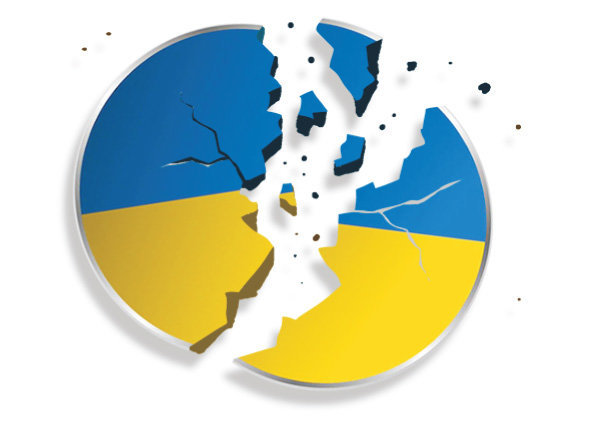Fratricidal War of Ukraine
Fratricidal War of Ukraine
Posted July. 19, 2022 07:58,
Updated July. 19, 2022 07:58

On June 22, 1941, Hitler scrapped the German-Soviet Nonaggression Pact with Stalin and attacked the Soviet Union by surprise. And this was codenamed Operation Barbarossa. Initially, Nazi Germany was fierce, dividing the army into Army Group North, Army Group Center, and Army Group South. They each advanced to Leningrad, Moscow, and Ukraine. On July 16, Gen. Heinz Guderian of Nazi Germany became the Chief of Staff of the Motorized Troops Command Staff and conquered Smolensk.
Smolensk is located in a straight line that connects Poland and Belarus to Moscow. In mid-July, Guderian fought off Soviet soldiers and seized Smolensk.
Gen. Heinz Guderian wanted to advance into Moscow right away, but Hitler ordered him to head to Ukraine for a reason. Ukraine was the most strategic region with abundant resources such as grain. Ukraine’s Donetsk, which is dominated by today’s Russia, produced 60 percent of coal, 75 percent of coke, 30 percent of iron, and 20 percent of steel in the entire Soviet Union region. Army Group South that headed to Ukraine, however, performed poorly.
The German general headed South directly to Kyiv and the Dnipro River. German soldiers besieged Soviet soldiers and annihilated 1 million of them. From that point, the nightmare of Ukraine started. Germans desired a resourceful Ukraine for hundreds of years and thought it should be the homeland of the Germans. They didn’t protect or convince Ukrainians, rather being cruel to them. Nazi Germany wanted to eradicate communists and Jews, and Ukraine was the communist region where Jews lived the most.
Before the end of the war, Germany and the Soviet Union engaged in fierce battles. Soviets were cruel to Jews as well as Ukrainians who had different roots. Soviet soldiers killed nationalists as they advance, and when they backed off, communists were killed in revenge. A similar tragedy Korea experienced during the Korean War where nations, ideologies, and people clashed with each other was exactly happening in Ukraine in the 1940s. Eighty years later, the tragedy is repeating. There is a saying in the history of Rome that goes, “Frailty, Thy name is the weak”.






